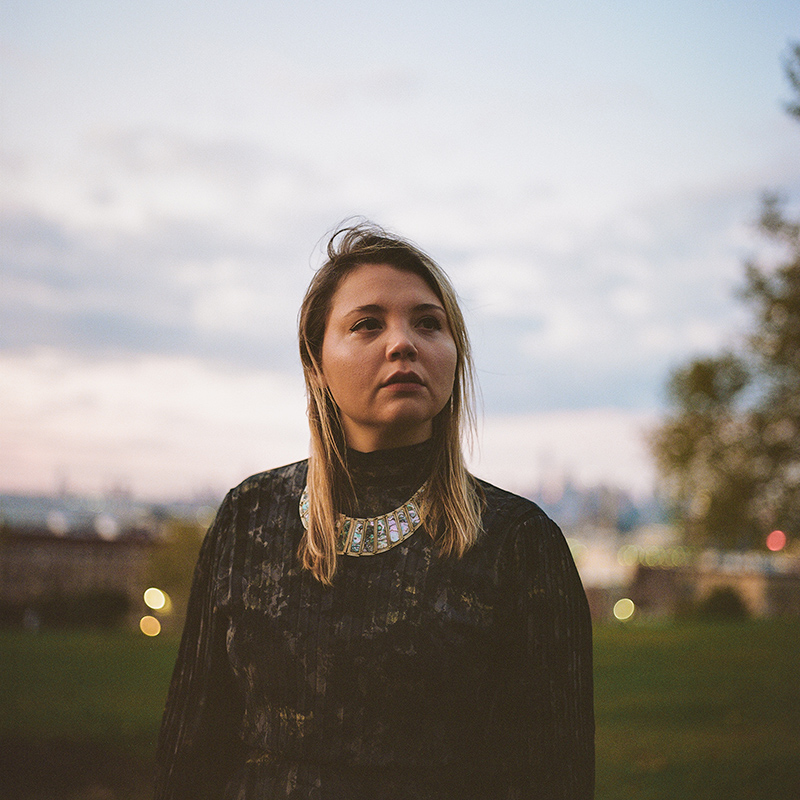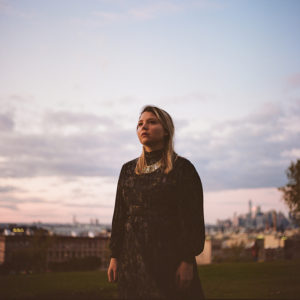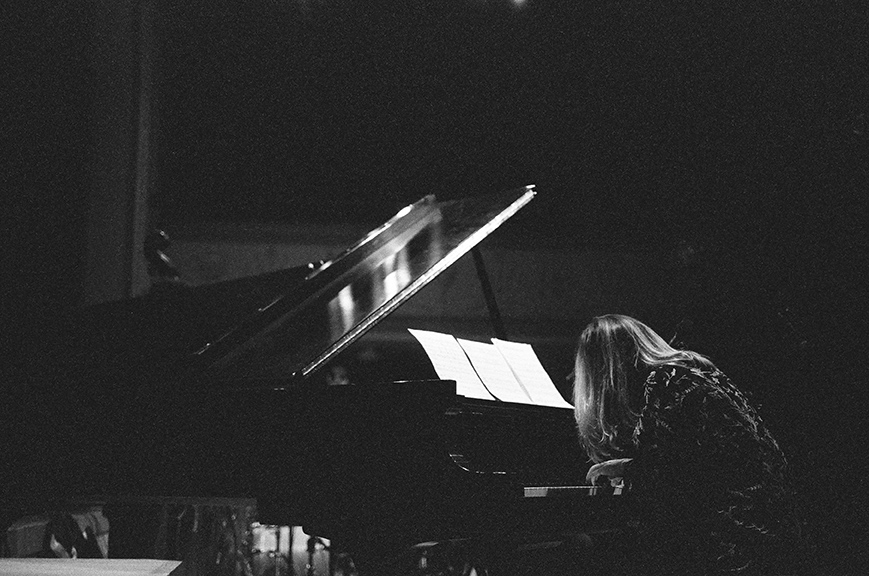Sonya Belaya is a first-generation Russian-American pianist, singer, composer, and improviser, who divides her time between New York and Michigan. Committed to multiplicity, she is a diverse music-maker invested in vulnerable art and the development of strong, personal collaborations. Her work centers on music as social work, with a focus on the integration of womxn’s trauma as musical narrative, and storytelling as a symbol of powerful vulnerability. Sonya is a 2020-2021 Resident Artist at Roulette Intermedium, made possible by the Jerome Foundation.
What are you currently working on?
I am currently working on my second piece as part of my Resident Artist year at Roulette Intermedium entitled “Twelve Most Common Cognitive Distortions”. This piece is inspired by conversations with my therapist about the cognitive distortions (also known as automatic thoughts) we experience. Through interviews and research, the piece will highlight the experience of immigrant womxn in the United States with cognitive distortions – how does the intersection of ancestry, psychology, spirituality, and culture play into the experience of automatic thoughts?
I hope this piece gives the audience a deeper understanding of how these cognitive distortions can be organized, understood, and dismantled in our daily lives.
Lately your work has been highlighting the issues in Russian politics – can you tell us about where your interest in art as protest comes from?
I recently made a piece titled “Three Sisters”, which examined the history of domestic violence against womxn in Russia, inspired by the recent Khachaturyan sisters trial. I wrote the music, used interviews from my sisters about their experience surviving domestic abuse, interspersed with clips of some of my favorite Soviet films.
I am a first-generation Russian-American, orphaned at the age of 20, with my entire extended family in Moscow. I am a citizen of two very beautiful and deeply flawed cultures; it is possible to hold both as true. Part of my interest in this work is to dismantle American perceptions of Russian culture while holding the systems of power accountable for their role and perpetuating fascism in all forms.
I also understand the privilege I have to make art about these topics. I don’t have to fear for my life, or my livelihood, the way citizens living in Russia do if they criticize or speak out against the oppression of the government. In Russia, many people get fired from their jobs, brutally arrested, artists are denied funding if their work is political – imagine that! A prominent theatre and film director [Kirill Serebrennikov] was recently fired from the most established theatre company in Russia [Gogol Center] because of his political art. I feel a sense of duty to continue to take any action I can to support those who have far more to lose than I do.
What inspires you as a performer/collaborator?
I am inspired by radical honesty and vulnerability first – art that creates space for the full spectrum of the human experience. Across mediums, genres, and styles of art-making, I am always drawn to the esoteric expression of the most difficult truths, particularly those pertaining to how we heal from individual and collective traumas. As a collaborator, I am drawn to people who are eager to participate in the communal experience of healing, and who create a nurturing, safe, and respectful environment for all collaborators involved.
What is special about Michigan?
Michigan has an incredibly vast amount of resources available to its students – more than most other programs out there. Between the EXCEL department, recording opportunities, and grant funding for graduate students, Michigan is a uniquely well-endowed institution. These resources are so difficult to come by once you’re out in the “real world”. My best advice for anyone considering Michigan, or who is already at Michigan, is to take advantage of these resources. This is something I wish I did while I was a student at the SMTD.
Tell us about one of your mentors.
I haven’t had a strong relationship with a mentor. I still wish for a mentor in my life. I’ve had to forge my own path in a lot of ways. What really helps me stay grounded and inspired are my peers in my creative community, without whom I would not be standing on two feet today. I have many artists that I look up to, but forging a relationship with a mentor can be difficult, especially as a womxn. I wish for more open mentor-mentee relationships for the future!
I’d like to give a shoutout to Christian Matijas-Mecca at the SMTD. Despite my misfit status, Christian was always there to support me. For students dealing with difficult circumstances in their studies, it is life-changing to have someone in your corner, rooting for you. I am eternally grateful for his support.
What is something you learned about yourself in 2020 that you want to take forward with you in your life?
There is enormous pressure on creative people to constantly be writing, composing, practicing, creating, etc. I’m learning that this capitalist ideal was actually causing me a lot of harm. It’s impossible and unsustainable. Finding balance is an eternal struggle. To say that I’ve “figured it out” would be a lie – but I’m learning that taking care of my physical and spiritual self is the most radical act of work I can do. I will be better equipped to take care of others, and be a better citizen, to those around me. I’m also enjoying learning new creative skills – the “beginner’s mind” is a beautiful mentality to carry through life.
What’s next for you?
I might make another album this year. It’s hard to say what’s next – I think that’s okay. Staying present is all we’ve got. I’m here, practicing gratitude and curiosity for the present. I am working on continuing to be a good friend, partner, and citizen while taking care of myself.



